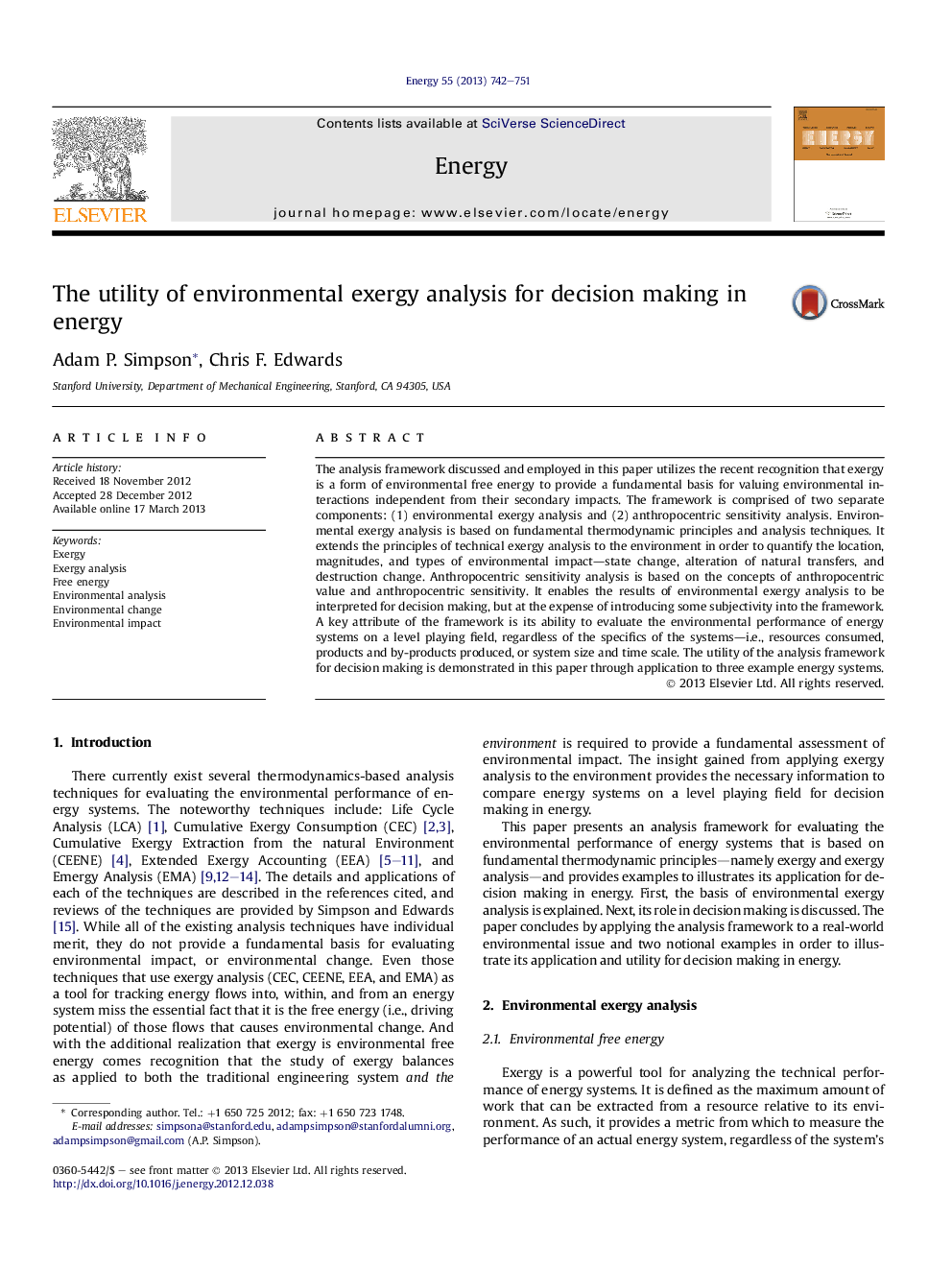| Article ID | Journal | Published Year | Pages | File Type |
|---|---|---|---|---|
| 1733010 | Energy | 2013 | 10 Pages |
The analysis framework discussed and employed in this paper utilizes the recent recognition that exergy is a form of environmental free energy to provide a fundamental basis for valuing environmental interactions independent from their secondary impacts. The framework is comprised of two separate components: (1) environmental exergy analysis and (2) anthropocentric sensitivity analysis. Environmental exergy analysis is based on fundamental thermodynamic principles and analysis techniques. It extends the principles of technical exergy analysis to the environment in order to quantify the location, magnitudes, and types of environmental impact—state change, alteration of natural transfers, and destruction change. Anthropocentric sensitivity analysis is based on the concepts of anthropocentric value and anthropocentric sensitivity. It enables the results of environmental exergy analysis to be interpreted for decision making, but at the expense of introducing some subjectivity into the framework. A key attribute of the framework is its ability to evaluate the environmental performance of energy systems on a level playing field, regardless of the specifics of the systems—i.e., resources consumed, products and by-products produced, or system size and time scale. The utility of the analysis framework for decision making is demonstrated in this paper through application to three example energy systems.
► Utilizes the recognition that exergy is a form of environmental free energy. ► Combines environmental exergy analysis and anthropocentric sensitivity analysis. ► Evaluates/compares environmental performance of systems on a level playing field. ► Independence from the system specifics—resources, by-products, sizes, time scales. ► Utility for decision making is demonstrated using real and notional energy systems.
